GeForce Garage: How to Get Ready for a LAN Party
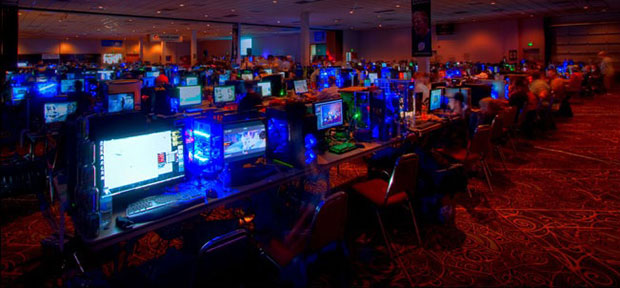
Surrounded by legions of PC brethren, taking part in a bring-your-own-PC LAN is one of the most rewarding social and gaming experiences in existence. Not only will you have your own customized, cozily familiar equipment with you, you'll also be able to show off your rig and your in-game exploits with the gathered masses. But the last thing you want to do is show up to a LAN unprepared—nothing is worse than unpacking your gear and realizing you forgot your cherished keyboard and mouse at home.
Whether you're a newbie or a veteran, you'll find this list extremely valuable. Plus, it's just as useful for attending smallish LAN parties as it is for hitting the big ones (such as November's PDXLAN in Portland). By referring to these steps ahead of time, you can take comfort in knowing you're ready for everything a LAN might toss at you. Read on for all the details!
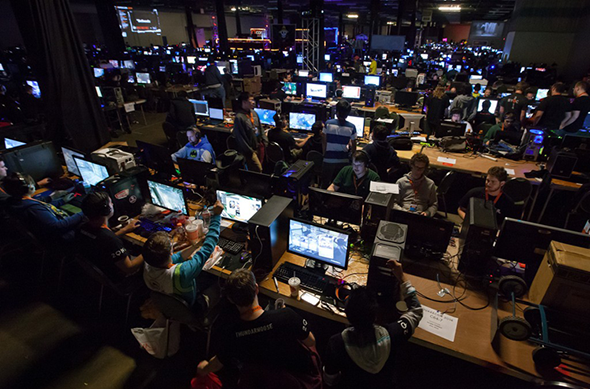
Reserve Your Seat Early And Study The Rules
If you want to join some popular LANs such as PDXLAN, QuakeCon, DreamHack, LANfest, or others, you've got to sign up ahead of time. Waiting until the last minute is a one-way ticket to crushing disappointment. This can often translate into reserving a space months and months in advance, especially with the likes of QuakeCon. But, since all registration policies and deadlines are different, you'll want to visit the website of the desired convention and read the verbiage carefully. Also, pay close attention to the rules—there are times where you might not be allowed to bring certain items or apparel, and you'll want to know what those restrictions are now, instead of being hard-stopped at the entrance (we once saw a guy's oversized, steel-framed backpack get the kibosh because the event had issues with people using them for stealing). If you're more in it just for the local LAN parties though, reserving a seat probably doesn't apply. But it never hurts to check.
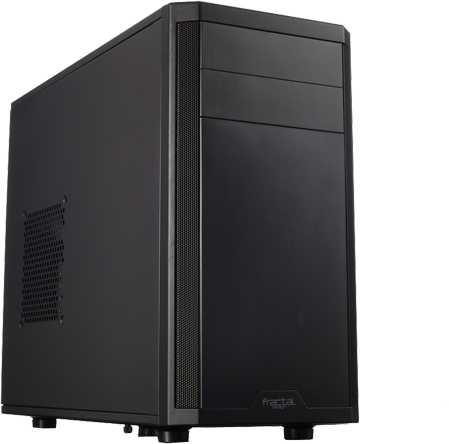
Put Together a LAN-Friendly PC
Now, before we go any further, it's important to point out that any PC can be transported to a LAN, even those built into massive, full-tower enclosures. There are even carrying cases tailored towards such rigs (we have a section in this article dedicated to that). But the truth is, the slimmer, more compact PC you have, the easier it'll be to travel with it. If you find yourself visiting LANs more often than not, you'll benefit greatly from assembling a PC that you can tote around with little effort.
When it comes to LANs, small PCs are golden. But you don't want to sacrifice cooling or performance, especially if you lean towards graphics-intensive FPSes. Best bet is to aim for a small to mid-sized chassis—preferably one with a handle—with an ATX or a microATX format, and one that can accept a powerful video card, such as the GeForce GTX 970. While the options might seem dizzying, review sites such as Maximum PC, [H]ard|OCP, and Tom's Hardware are great for narrowing the choices. PC Part Picker is a fantastic resource as well, especially for looking up recommendations and organizing potential selections. For an in-depth guide on the steps to picking the best parts for your build, check out this feature.
Of course, we'd be remiss not to point out that our recent guides on how to put together a $450 PC and a $1,000 PC are also fine choices for LANs, as both of these configurations rely on smaller cases packed to the brim with some very respectable components. Plus, by using one of these setups, you won't need to worry about deciding which parts are best, as we've already tackled that task for you. Just click on the links next to each component in the articles, hit Order, and then assemble!
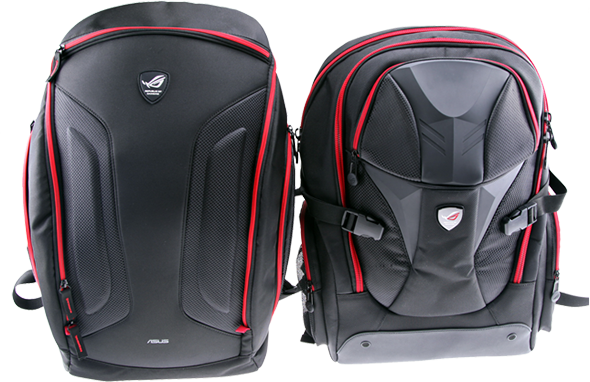
Get A Rugged Backpack
If you don't already own one, investing in a high-quality backpack should be your fist priority. Ideally, you'll want one that's big enough and roomy enough to store a full-sized keyboard, a mouse, a mousepad, a headset, and all sorts of other odds and ends, such as gaming swag and the all-important foodstuffs. Targus offers a wide line of hardware-centric backpacks, such as the Sport 26L, Razer has the fancy and functional Utility Backpack, and most laptop-themed bags will work great as well (check out Maximum PC's list of some of the best). If you've got a little coin to spare, you absolutely can't go wrong with Asus's Republic of Gamers Nomad or the Aorus Ultimate Backpack. As we mentioned earlier though, make sure to check with larger LAN's websites to make sure your backpack is permissible to use at the event.
While we're on the topic of storing critical items, be sure to remember your phone's charging cable! (And your tablet's too, if applicable.) In fact, we recommend having a spare phone/tablet cable stored safely away in your backpack at all times, for situations just like this. That way you never have to worry about stumbling out of bed and forgetting it in the hotel or on your buddy's couch.
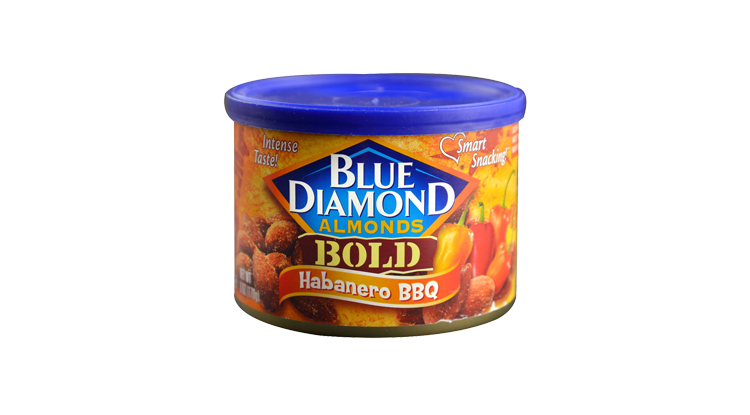
Bring Your Own Food
Whether it's a massive, sponsored gathering or your pal's hipster basement, you're going to get hungry and thirsty rather fast after some heated multiplayer battles; you'll hate everything if you don't have any way to stuff your face. While it might sound obvious, forgetting to pack food and drinks is one of the most common errors when it comes to LANs. But you can't just slap together a ham sandwich, toss it into your backpack, and expect it to tide you over at the moment of truth. This is especially true if the LAN is a multi-day event.
Instead, pick your choices wisely. Non-perishable foods are by far the best. That ham sandwich we mentioned above might be delicious a few hours after you make it, but probably far less so a day later. Top-tier contenders for your pallet include trail mix, granola bars, almonds (Blue Diamond's Habanero BBQ will put some pep in your gaming step), bagged dry cereal (nothing beats plain old Cheerios), beef jerky, dried fruit, and energy bars. It can be tempting to bring canned goods as well, such as soup, but unless you know well ahead of time that there are microwaves or stoves readily available (highly unlikely at large LANs), it's better to leave those behind.
For drinks, you'll want to stock up on bottled water first and foremost. Resist the urge to collect pallets of soda and energy drinks; while admittedly tasty, you'll only end up crashing later on from chugging loads of them. We speak from some notable experience here. If you really need the caffeine though, one or two energy drinks a day is permissible. But for pure hydration, water is the best.
Speaking of food, go ahead and grab a fistful of plastic waste-bags, and tuck them into that handy backpack. A good LAN will have plenty of trash and recycling barrels nearby, but it's astonishing how quickly they fill up. When that happens, you really don't want all your refuse piling up around your monitor and chair. Not only is it unsanitary and unattractive, a wayward wrapper or empty can falling onto your keyboard and interrupting your fingers can mean the difference between life or death in-game.
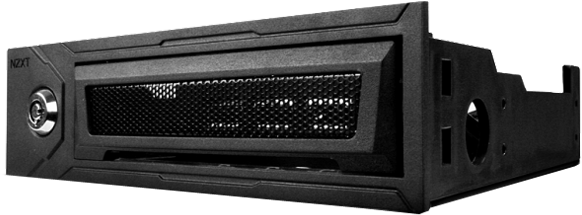
Protect Your Hardware
A spare surge protector and an extra extension cord are godsends at LAN parties, so go ahead and drop those into your backpack as well (see how useful that backpack is?). And sure, most reputable, high-profile LANs offer these by default, but sometimes the gamers next to you—and across from you—can get there early, hogging those precious spare outlets. Even worse, there are times where the supplied extension cords aren't quite long enough, and you have to negotiate tripwires of power cables just to get out of your chair. And always remember: there's a huge difference between a power strip and surge protector. Some folks neglect to realize this, and if there's an actual power surge, you could risk getting your PC nuked if it's connected to improper protection. Bringing your own surge protector is a sure-fire way to avoid such a grisly fate.
But guarding your rig from harm extends to more than just the power supply. It's not unheard of for filthy thieves to rob you of your peripherals and components while you're off in the bathroom, or grabbing autographs from Day[9]. Stop them in their tracks by using a USB guard such as NZXT's Bunker, or by physically unplugging your keyboard and mouse and stuffing them into your backpack and bringing them with you wherever you go. It's also never a bad idea to lock your PC case down by using Phillips-head screws on the side panel and rear panel instead of easy-to-access finger screws. Small focuses such as these are powerful deterrents at warding off theft.
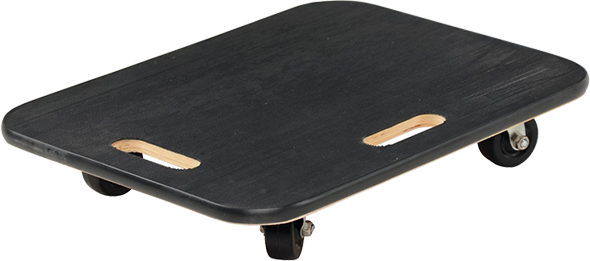
Transport Your Equipment Safely
Without the proper gear, hauling your PC and accessories around can be a maddening adventure in dropped parts, smashed fingers, and aching lumbars (even with a small form-factor case). And while that awesome backpack is still your best friend, it can only do so much. Therefore, it's a pro move to invest in some help. The GearGrip Pro is simple, affordable, and wildly effective—just strap it around your chassis and use the handle to carry it like a giant, monolithic briefcase.
A flat and basic dolly will also make your LAN-transporting life agreeably stress-free, so long as you don't have to summit any steep stairs. If you've got some extra dollars, and you want to move your gear in style, we highly recommend the Cosco Shifter Multi-Position Heavy Duty Folding Hand Truck. It's rugged (it'll hold up to 300 pounds of hardware), it can be transformed into a flat dolly or into an upright, two-wheeled beast of burden, and it even collapses into a low-profile rectangle, which makes storing it a snap.
Regardless of the method you choose, remove your graphics card (so long as it's not liquid-cooled) and any other add-in cards and slide them into some anti-static wrap, and place them in a separate carrying case. This way, if you do accidentally give your chassis a tumble, the PCI cards won't snap off inside. This is also as good a time as any to nestle your trusty Philips-head screwdriver inside your cherished backpack.
Storing your monitor inside a carrying case will ensure it doesn't get cracked, scratched, or generally damaged. The FSI Solutions TC27 Rolling Trolley Case is an awesome example, but if you can't quite scrape up the cash, a thick layer of heavy-duty bubble wrap secured around the panel is surprisingly adequate as well (just don't drop your LCD off a bus and expect a miracle).
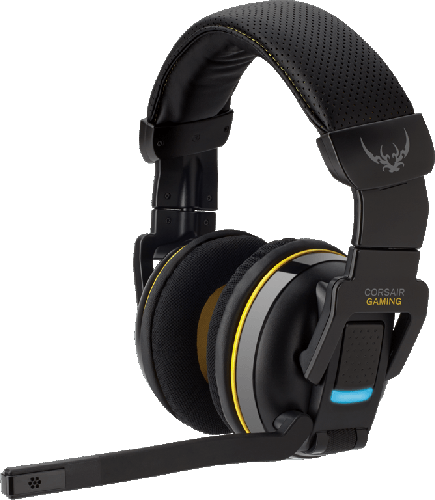
Purchase A High-Quality Headset
Speakers are strictly a no-go at LAN parties. In their place, you'll need a strong pair of headsets to handle all your games' sound and communication. Since the LAN floor will probably be loud (expect lots of cheering and jeering), a set with noise-reducing materials and a high-grade mic should be at the top of your list. If you've already got a serviceable pair, and you're happy with them at home, they'll probably be fine for a LAN.
However, if you're on the fence, or if you're ready to buy a new set, we have a soft spot for Logitech's G230's. They're incredibly easy on the bank account, they're comfy, the mic won't pick up too many ambient sounds, and they sound terrific. If you prefer a wireless headset though, the Corsair Gaming H2100 cans will massage your ears with their 7.1 sound, oversized 50mm neodymium drivers, and velvety memory-foam ear cups. They've also got a uni-directional, noise-canceling microphone and up to 45 feet of wireless range. Whichever headsets you spring for, just remember to store them—and the wireless receiver, if applicable—inside that backpack before heading off to the event.
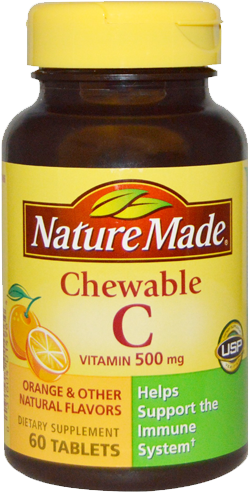
Shield Yourself From Germs
Taking care of yourself is just as important as taking care of your PC. After all, if your immune system gets pulverized and you end up buried in a box of Kleenex, you won't do much good in that StarCraft II tournament. An effective method for staving off sickness is stocking up on a bunch of chewable vitamin-C tablets, and eating them during the LAN. You'll also want a king's ransom's worth of hand sanitizer nearby. Use it whenever your mitts come into contact with another person—including high-fives and handshakes—and if you happen to try out someone else's keyboard and mouse. It sounds a bit paranoid, we know, but as those who suffered from PAX's H1Nerd1 virus can tell you, it's better to take the necessary precautions than end up infected.
It's also in your best interests to bring some pain medication such as Advil or Tylenol. Headaches pop up at the most inconvenient times, as do joint aches and sore muscles. Getting your noggin slammed with agony and not having any way to make it better will ruin the fun almost instantly. And while you're placing all of these items into that unbelievably useful backpack, make sure to stick some extra deodorant in there too. It won't prevent you from getting the flu, but it'll make everyone else much happier to be around you.
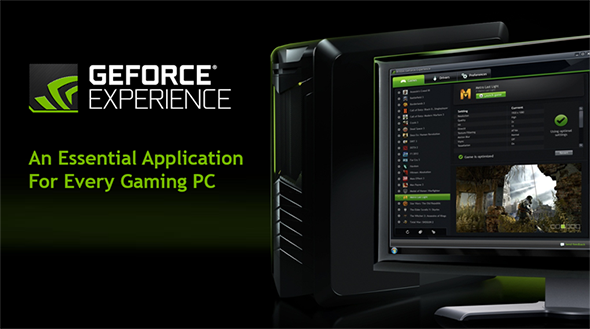
Run Updates And Patches Beforehand
Most LANs, be they gargantuan or tiny, will usually have internet. But even if they do, it can be painfully slow, and sometimes sporadic. Plus, it's a drag to get all your gear ready to rock and roll only to discover that every game needs seven updates a piece at 800MB a pop. Luckily, this rather unfortunate dynamic is easy to avoid by running patches on all your favorite games the night before the event.
Same goes for your NVIDIA GPU drivers. If you have GeForce Experience setup on your system—and you really should—it's a cakewalk. GeForce Experience auto-notifies you of any new drivers, which means all you need to do is click Install, and the app will do the rest. You can also click on the Drivers tab to see exactly which version of a driver you currently have, and whether or not you may have missed a pop-up prompting you for a new release. Additionally, make absolutely sure your antivirus software has the most current definitions; while you might keep your own PC fresh and clean, it's hard to place that much trust in others.
Conclusion
Taking part in a LAN is a wonderfully unique social experience, but it doesn't come without its risks and hardware-related tribulations. However, by taking the precautions and following the steps outlined in this guide, you'll be covered for whatever comes your way. That means you'll be free to focus on what you're there for in the first place: playing a bunch of sweet games with a group of likeminded friends.
Did we miss a valuable suggestion? Got any tips of your own? Share them with us in the comments section below!